Justice Phil Johnson Retires From Texas Supreme Court
“You feel like in this position, you can make a difference. The law is the superstructure of society, the framework for doing what we can do,” he said. “I'll miss that I was contributing. That's what I'll miss about it.”
November 09, 2018 at 04:34 PM
3 minute read
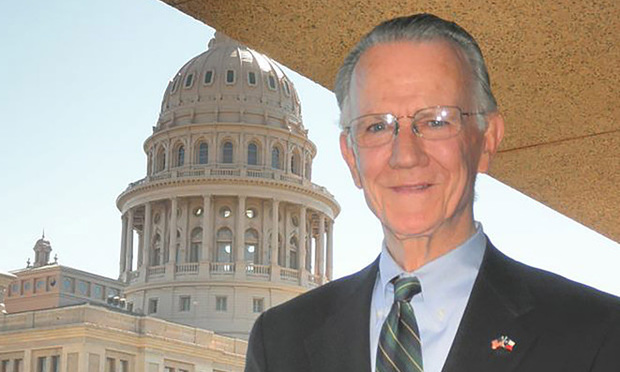 Texas Supreme Court Justice Phil Johnson/courtesy photo
Texas Supreme Court Justice Phil Johnson/courtesy photo
Texas Supreme Court Justice Phil Johnson, a decorated former U.S. Air Force fighter pilot who served as an appellate court judge for two decades, announced he will retire from the Texas Supreme Court at the end of the year.
“You feel like in this position, you can make a difference. The law is the superstructure of society, the framework for doing what we can do,” he said. “I'll miss that I was contributing. That's what I'll miss about it.”
Johnson, who is 74, has a term ending in December 2020. Texas law requires judges to retire from the bench at age 75 but allows them to serve out their complete terms if they so choose.
“I'm finishing up 20 years at the end of this year, I just thought that was enough for me,” Johnson said. “And I have some family considerations.”
He served from 1967 to 1968 in the Vietnam War, where he won the Silver Star; the Distinguished Flying Cross, with bronze oak-leaf cluster; the Air Medal, with multiple oak-leaf clusters; and the Republic of Viet Nam Cross of Gallantry. Johnson continued as an Air Force instructor until 1972, when he enrolled in Texas Tech University School of Law.
Johnson graduated law school in 1975 and joined the Crenshaw Dupree & Milam law firm in Lubbock. He was later elected to the Amarillo Court of Appeals in 1998 and appointed to the Texas Supreme Court in 2005 by then-Texas Gov. Rick Perry.
Johnson leaves the court as its third-most-senior judge behind Chief Justice Nathan Hecht, who joined the court in 1988, and Justice Paul Green, who was elected to the court in 2004.
“He has made a vast and indelible contribution to Texas law,” Hecht said. “Justice Johnson is greatly beloved and admired by the court and its staff, and we will miss his wise and steady leadership greatly.”
Likewise, Johnson said he'll miss his colleagues on the high court.
“I've served with quite a few justices, and you've had different personalities go through, but my view is the court has always acted appropriately,” Johnson said. “We would disagree, but it's always been in a professional way. It's been a privilege to me to serve with the people I've served with on the court.''
Johnson also said he plans to move away from the high court's home in Austin soon as a way of making good on a promise he made to his wife over 13 years ago.
“We raised our family in Lubbock. And my wife is pretty partial to Lubbock,” Johnson said. “And I said, when this is over, we'll go back to Lubbock. It's a 95 percent we'll end up back in Lubbock.''
This content has been archived. It is available through our partners, LexisNexis® and Bloomberg Law.
To view this content, please continue to their sites.
Not a Lexis Subscriber?
Subscribe Now
Not a Bloomberg Law Subscriber?
Subscribe Now
NOT FOR REPRINT
© 2025 ALM Global, LLC, All Rights Reserved. Request academic re-use from www.copyright.com. All other uses, submit a request to [email protected]. For more information visit Asset & Logo Licensing.
You Might Like
View All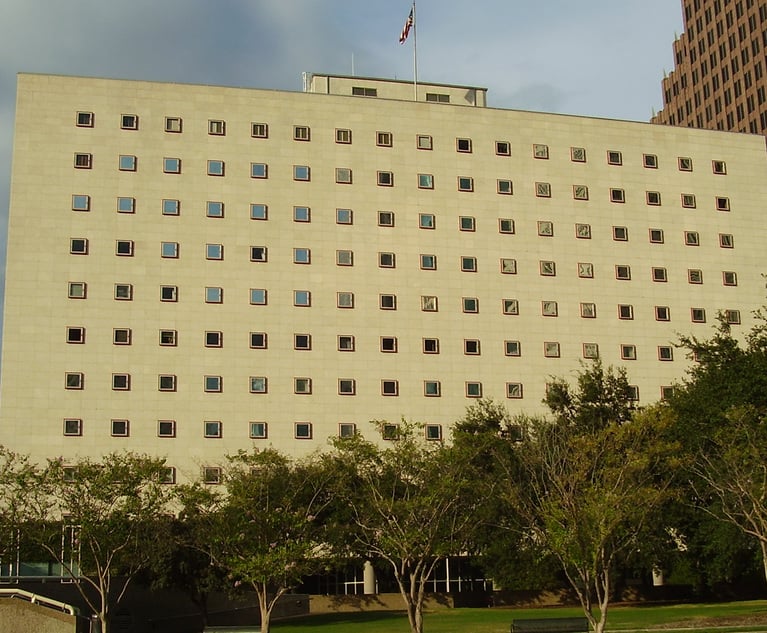
Conspiracy Suits Against Quinn Emanuel, Roc Nation Moved to Federal District Court
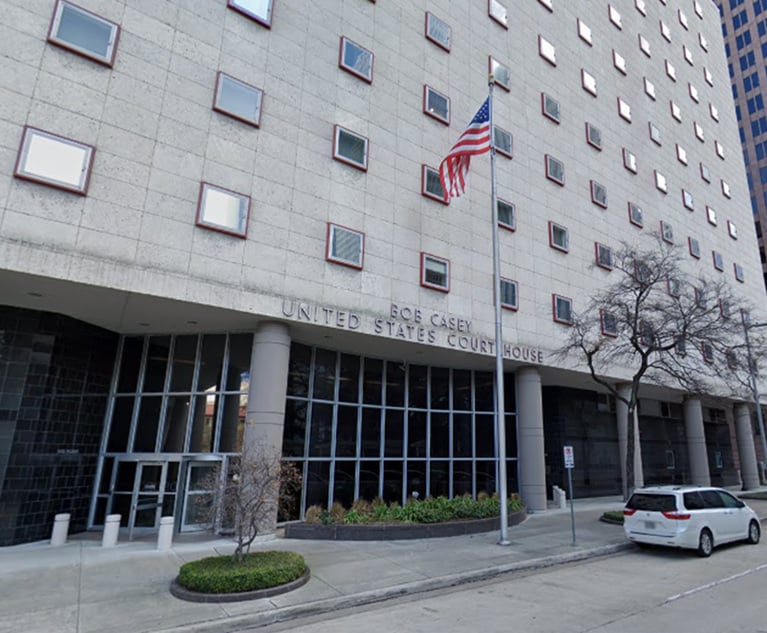
JCPenney Seeks Return of More Than $1.1M From Jackson Walker For Bankruptcy Work
3 minute read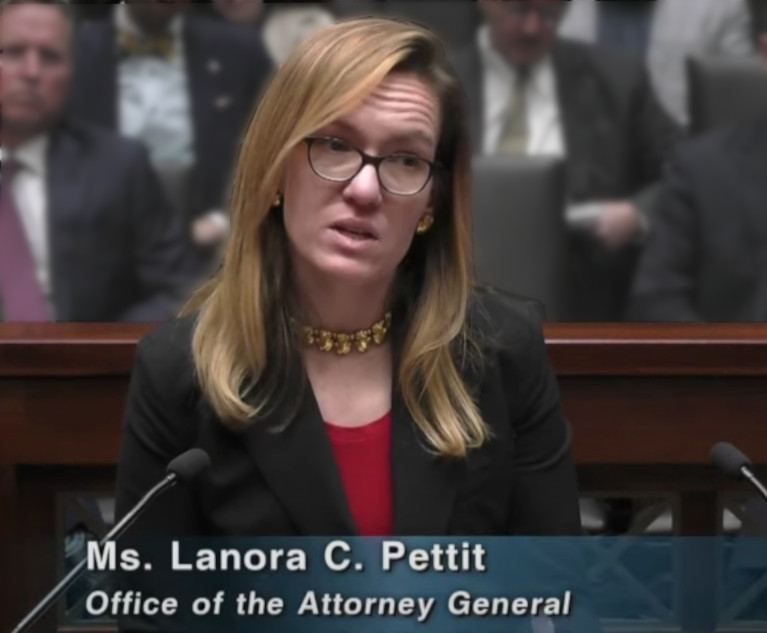
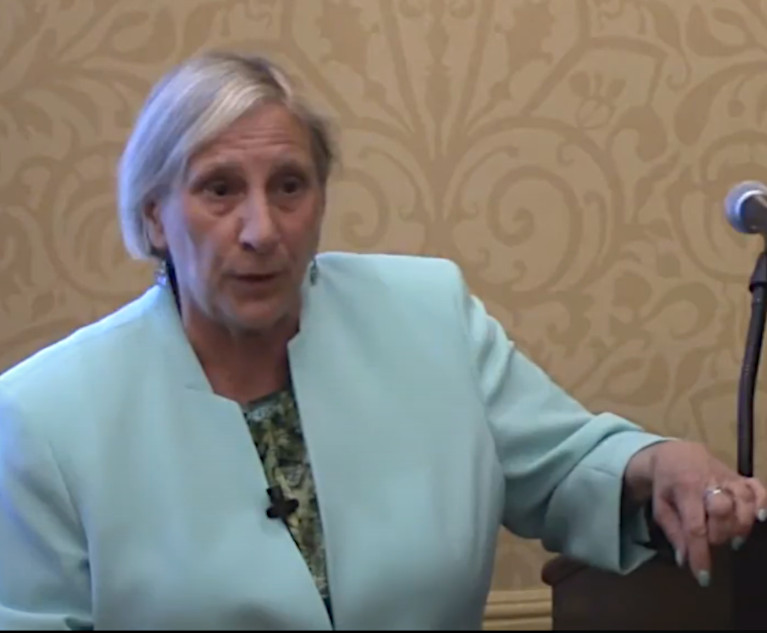
HUD Charges Texas HOA With Housing Discrimination in Last Days of Biden Administration
5 minute readTrending Stories
- 1Uber Files RICO Suit Against Plaintiff-Side Firms Alleging Fraudulent Injury Claims
- 2The Law Firm Disrupted: Scrutinizing the Elephant More Than the Mouse
- 3Inherent Diminished Value Damages Unavailable to 3rd-Party Claimants, Court Says
- 4Pa. Defense Firm Sued by Client Over Ex-Eagles Player's $43.5M Med Mal Win
- 5Losses Mount at Morris Manning, but Departing Ex-Chair Stays Bullish About His Old Firm's Future
Who Got The Work
J. Brugh Lower of Gibbons has entered an appearance for industrial equipment supplier Devco Corporation in a pending trademark infringement lawsuit. The suit, accusing the defendant of selling knock-off Graco products, was filed Dec. 18 in New Jersey District Court by Rivkin Radler on behalf of Graco Inc. and Graco Minnesota. The case, assigned to U.S. District Judge Zahid N. Quraishi, is 3:24-cv-11294, Graco Inc. et al v. Devco Corporation.
Who Got The Work
Rebecca Maller-Stein and Kent A. Yalowitz of Arnold & Porter Kaye Scholer have entered their appearances for Hanaco Venture Capital and its executives, Lior Prosor and David Frankel, in a pending securities lawsuit. The action, filed on Dec. 24 in New York Southern District Court by Zell, Aron & Co. on behalf of Goldeneye Advisors, accuses the defendants of negligently and fraudulently managing the plaintiff's $1 million investment. The case, assigned to U.S. District Judge Vernon S. Broderick, is 1:24-cv-09918, Goldeneye Advisors, LLC v. Hanaco Venture Capital, Ltd. et al.
Who Got The Work
Attorneys from A&O Shearman has stepped in as defense counsel for Toronto-Dominion Bank and other defendants in a pending securities class action. The suit, filed Dec. 11 in New York Southern District Court by Bleichmar Fonti & Auld, accuses the defendants of concealing the bank's 'pervasive' deficiencies in regards to its compliance with the Bank Secrecy Act and the quality of its anti-money laundering controls. The case, assigned to U.S. District Judge Arun Subramanian, is 1:24-cv-09445, Gonzalez v. The Toronto-Dominion Bank et al.
Who Got The Work
Crown Castle International, a Pennsylvania company providing shared communications infrastructure, has turned to Luke D. Wolf of Gordon Rees Scully Mansukhani to fend off a pending breach-of-contract lawsuit. The court action, filed Nov. 25 in Michigan Eastern District Court by Hooper Hathaway PC on behalf of The Town Residences LLC, accuses Crown Castle of failing to transfer approximately $30,000 in utility payments from T-Mobile in breach of a roof-top lease and assignment agreement. The case, assigned to U.S. District Judge Susan K. Declercq, is 2:24-cv-13131, The Town Residences LLC v. T-Mobile US, Inc. et al.
Who Got The Work
Wilfred P. Coronato and Daniel M. Schwartz of McCarter & English have stepped in as defense counsel to Electrolux Home Products Inc. in a pending product liability lawsuit. The court action, filed Nov. 26 in New York Eastern District Court by Poulos Lopiccolo PC and Nagel Rice LLP on behalf of David Stern, alleges that the defendant's refrigerators’ drawers and shelving repeatedly break and fall apart within months after purchase. The case, assigned to U.S. District Judge Joan M. Azrack, is 2:24-cv-08204, Stern v. Electrolux Home Products, Inc.
Featured Firms
Law Offices of Gary Martin Hays & Associates, P.C.
(470) 294-1674
Law Offices of Mark E. Salomone
(857) 444-6468
Smith & Hassler
(713) 739-1250






